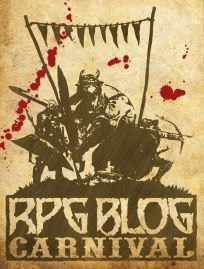
Exactly what a budget means varies from person to person. For some people it’s a creative fiction they tell themselves in order to buy what they want. For others, it’s a rough guideline of how much they can spend each month. For me a budget truly is a budget — a plan for how my family will save and spend our money.
Get out the envelopes
During Nuketown’s Great Migration I wrote “A Year of Envelope Budgeting”, which recounted my family’s successful attempt to create and stick to a budget. This wasn’t the first budget my wife and I tried to create — by my reckoning it was our third — but it was the one that worked. Read the post for all the gory details, but in short we implemented a budget based around the idea of physical envelopes of cash.
When we attacked our budget this time, we looked at the previous 12-18 months of expenses. We broke those expenses into categories like “Car Repair”, “Dining: Family”, and “Sports”. Each month we put money into envelopes (some real, some virtual) corresponding to those categories. If we didn’t spend the money, it rolled over into the next month. If we overspent a category, we either had to balance the budget from other categories or we reduced the amount we had for the next month.
As a result of this budget we were able to claw our way out of the cycle of semi-catastrophic events — like major car repairs or a new refrigerator — laying waste to our finances and forcing us to pay for things with credit cards. By saving money in critical categories, we were able to get to the point where we could pay for those kinds of events with money in the bank, eliminating the need for ongoing (and growing) credit card debt.
Thanks to the budget, I know that every month I have $100 to spend on “Ken’s Entertainment”. That category includes anything I might want to buy or do for myself: buying a new RPG, going to the movies, getting a new book, funding a Kickstarter project, etc. This is augmented by the occasional Knights of the Dinner Table freelance checks but for the most part $100 is what I have to spend.
This is a good thing! It makes pulling the trigger on big ticket items like Kickstarters a much more deliberative process. Case in point: the Flash Gordon Kickstarter for Savage Worlds. I was sorely tempted by that one, but buying it at the “Warlord of Mongo (GM Set Print)” level would cost $100, effectively wiping me out for the month. Instead of going with the Kickstarter, I decided to be patient and wait for the print books to be released. It may take me longer to buy all the books (and I very much want to buy all the books) but spending $20-$30 a month on source books is far more doable than dropping $100 all at once.
Staying within my budget
Although I have a personal entertainment budget of $100 a month, I don’t allocate a specific percentage of that to games. Most months, I don’t buy much in the way of gaming materials. If there’s a new Dungeons & Dragons source book I’ll pick it up and I may pick up the occasional PDF from RPGNow depending on the campaign, but most of the time I’m pretty frugal.
Here are of my strategies to avoid busting my budget:
- Generic figures: I love minis as much as the next gamer, but they’re expensive. I cherrypick which minis I buy, focusing on cool and interesting minis for my personal characters or notable non-player characters from the campaign. I rarely buy large numbers of monsters or generic NPCs. Instead, I rely on plastic HeroQuest figures. They’re varied enough to easily represent a variety of different threats, and work well in most settings (particularly if you’re willing to suspend your disbelieve about orcs marauding through 1930s Paris).
- Buy in bulk: There are certain supplies I use a lot of (e.g. wet erase markers, index cards). Rather than buy them one pen or small pack of cards at a time, I buy a lot of them in bulk. It may not save me that much money, but it does save me time.
- Buy quality: Where quality is important, I spend the extra money. The best example of this is Moleskines notebooks. Some find them pretentious and expensive. That may be, but they can also take a beating. I bought some cheap knockoffs a few years ago and was dismayed when pages started falling out. A bargin isn’t a bargin if you’re losing precious material … and have to buy another book
- Be selective: Back in the pre-kid era I happily spent a lot of money on HeroClix and Dungeons & Dragons 3.x supplements (thanks to a significantly larger freelance income). These days I’m much more selective, choosing to focus on books and products that can materially improve my game. I’ll still buy the occasional fun book just because (I’m looking at you, Paranoia Starter Kit) but most of the time I’m looking for something that will help the game.
- Use what I have: I have an entire bookshelf full of role-playing games, a good third of which are Dungeons & Dragons sourcebooks of one kind or another. I turn to those books first before looking for something new, especially since D&D 5e makes it so easy to convert content from previous editions.
Featured Image Meta
I didn’t have a good idea for an image for this post, so I went with the old “Stack of Books” standby. Credit: Ken Newquist

